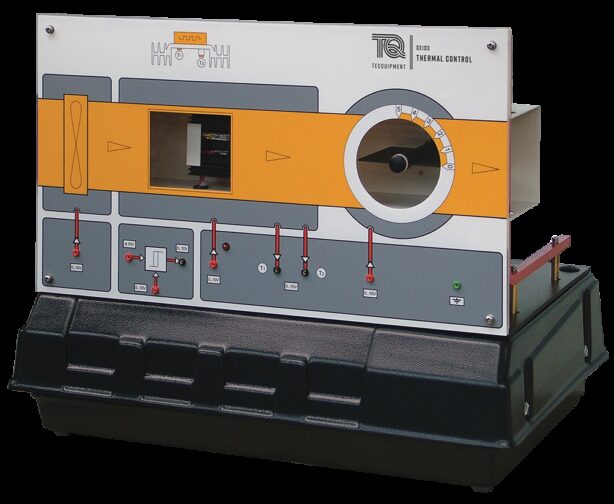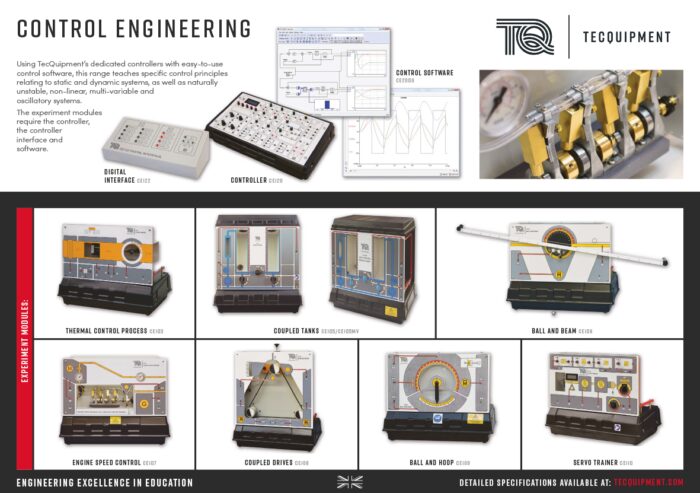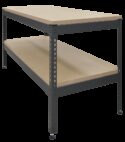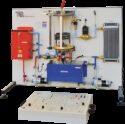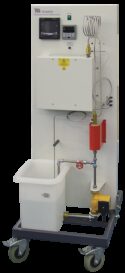Experiment
CE103
THERMAL CONTROL PROCESS APPARATUS
A compact self-contained bench mounting temperature control apparatus designed to allow students at all academic levels to investigate the basic and advanced principles of control.
If you have any questions or you'd like to discuss a product, please call us.
+44 1159 722 611THERMAL CONTROL PROCESS APPARATUS
The Thermal Control Process Apparatus mimics a common industrial process, including an air-conditioning plant, where a combination of adjustments can control temperature. These can be:
- Varying the heat energy input to the system
- Varying the speed of a circulating fan
- Using a variable vane to restrict the flow
The apparatus has a variable-speed fan that forces air through a duct. In the duct is an electrically-heated process block. A balance of the heat gained from electrical heating and heat lost by convection and conduction gives a steady temperature at the block.
Two temperature sensors measure the temperature of the block. One sensor is in direct thermal contact with the block. The other sensor mounts on an insulating spacer to introduce thermal inertia and variable-time constants into the control loop. A servo-driven vane, mounted after the fan and the process block, creates a variable restriction downstream for more advanced experiments.
The control problem is to keep the process temperature within acceptable limits while it works under various conditions. A combination of regulating the electrical energy to the heater, varying the air flow rate and rotating the vane gives the heat control. The apparatus has scaled down time constants for shorter laboratory time.
A relay amplifier with variable hysteresis allows more advanced experiments. The flexible design of the equipment allows the user to develop many other analysis and control exercises to suit their needs. It is good for extended or advanced control experiments, and is ideal for student project work.
Learning outcomes
- Heat transfer
- ON/OFF control – experiment includes investigation of overshoot and undershoot, ON and OFF time ratio, rates of heating and cooling, offset and hysteresis
- Proportional, proportional + integral, or proportional + integral + differential control
- Frequency response of model process
- Thermal inertia and variable-time constants
- Multi-variable control – up to three variables can be monitored and individually controlled

